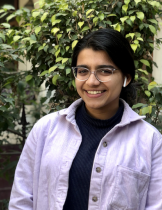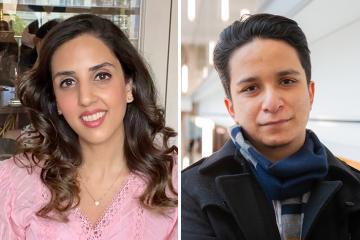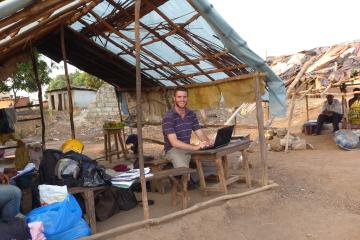
Postdoc Spotlight: Jules Gazeaud, J-PAL '24, on his research journey at J-PAL MENA
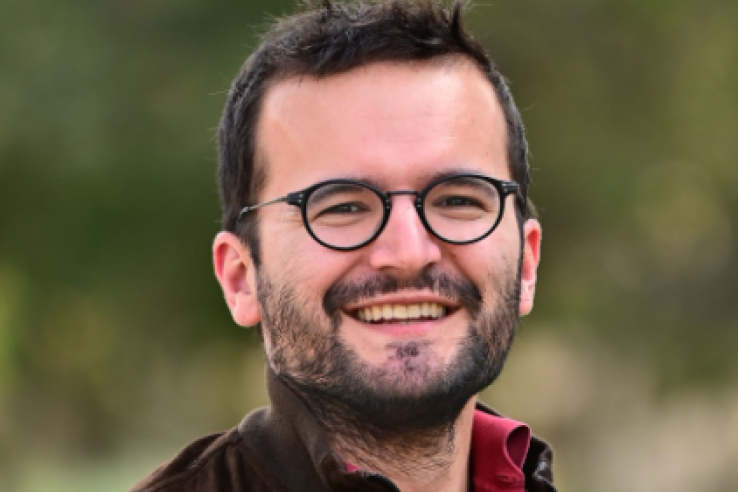
In our new postdoc alumni spotlight series, we spoke with Jules Gazeaud, J-PAL '24, about his experience as a postdoctoral researcher at J-PAL Middle East and North Africa.
What drew you to the field of development, and in particular the topics of social protection, migration, and microenterprises? What questions have motivated your research?
I became interested in social protection and migration topics while doing field work in Comoros during my PhD. There, I was struck by some of the challenges policymakers faced, such as how to identify poor households when there is no accurate data on income. I became also interested in what makes people migrate and what factors constrain their decisions. Migration patterns are very salient in Comoros, especially towards Mayotte, the neighboring French island. Aspiring migrants generally use smugglers to reach Mayotte and thousands of Comorians have died on this often-overlooked migration route. I became passionate about questions like why people do and do not migrate and what are the impacts that migration has on the migrants themselves, their families, and their communities.
What was your motivation for doing a PhD and what attracted you to do a postdoc at J-PAL?
I got offered a PhD position immediately after I finished my Master at CERDI – Université Clermont Auvergne and it felt like a dream to get paid to study and learn about something I enjoyed. During my PhD I spent almost two years in the Comoros Islands to monitor an RCT of a cash transfer program implemented by the World Bank. It was a transformative experience but it was only one “data point” and I wanted more exposure to RCTs to see whether what I learned from that study would generalize to other contexts. A postdoc at J-PAL seemed like the perfect opportunity to get more systematic insights into what experimental research really is and how it is conducted. I spent almost three years in Egypt, at the J-PAL Middle East and North Africa (MENA) office in Cairo. During that period (2021-2024), I observed the development and implementation of more than a dozen RCTs, grasped the diversity of challenges that can emerge along the way, and learned about the solutions to address them. On a more practical side, the postdoc gave me more time to polish my ideas, publish the chapters of my PhD dissertation, and decide whether I wanted to pursue an academic career or find a more policy-oriented position.
What excited you the most about working with J-PAL MENA, and what are some things you learned from the experience?
My time as a J-PAL postdoc was a wonderful period of growth and learning. Prior to the postdoc, I thought experimental research was mostly about testing the effectiveness of existing programs, but something I quickly realized is that it is also possible to co-design programs and evaluations with NGOs and policy-makers to test important economic theories. For example, I embarked on a project with J-PAL affiliated professors Adam Osman , Natalia Rigol , and Ben Roth where we partnered with several Egyptian microfinance institutions to introduce new financial products that could produce bigger impacts for firms (eg, a personalized microcredit product , a standard microcredit product that comes with an insurance component). These products are motivated by existing theories for why classic microcredit might limit firm growth.
The hope is that this project will inform which financial products provide the biggest potential for growing firms in Egypt and beyond. I am now trying to use the insights I gained during the postdoc to design studies on migration and adaptation to climate change.
What resources and networks were available to you while at J-PAL and how did you use them?
A postdoc at J-PAL—in particular in a regional office—is very different from a postdoc in an economics department. Most of my colleagues were research assistants or research managers who are dealing with the day-to-day operations that are necessary to implement RCTs. Every week we would meet to discuss the progress of the different projects and brainstorm possible solutions for the challenges encountered. Being based full time in Egypt meant I always had opportunities to go to the field, oversee project implementation, do qualitative work, observe how questionnaires work in practice, and connect with local partners and researchers. I was supervised by then-executive director of J-PAL MENA Alison Fahey and current Executive Director Ahmed El Sayed , and received guidance from Bruno Crépon and Adam Osman, the co-scientific directors of the MENA office. I also had the opportunity to meet numerous J-PAL affiliates when they visited the Egypt office. Something I missed a lot is the types of seminars typical economic departments have, but fortunately there were many seminars and workshops I was able to attend virtually such as VDEV and the NBER Summer Institutes. With the research team at J-PAL MENA we also organized our own, internal version of a seminar in which we would present and discuss recent experimental research.
You've since taken your talents to CERDI as a Research Fellow. Could you tell us about your new role? How did your time at J-PAL help prepare you for it?
I am now a CNRS researcher, based at CERDI in France (CNRS, or Center National de la Recherche Scientifique, is France's largest public research organization. CNRS researchers are based in universities and laboratories across France and hold the status of civil servants. They conduct fundamental and applied research in disciplines ranging from physics and biology to humanities and social sciences.). What I particularly enjoy about being a CNRS researcher is that I can fully dedicate my time to research, the position is tenured, and I am not required to study certain topics. The fact that there is no teaching load gives me a lot of freedom to spend time in the field and select which courses to actually teach. I doubt I would have been able to get this position without my time at J-PAL because it requires some good publications and a fully-fledged research agenda—two things I did not have at the end of my PhD.
What would you give PhD students who might be interested in pursuing a postdoc at J-PAL and/or a career in line with yours?
I think a postdoc in one of J-PAL's regional offices is the perfect career path for anyone interested in gaining more insights into what the frontier of experimental development research is and how RCTs are being conducted in practice. Obviously, it offers fantastic opportunities to join and start new projects, but something I recommend is to be very careful at selecting projects because it is easy to be overwhelmed. RCTs take so much time that it is crucial to join projects that are genuinely interesting—the opportunity cost of taking an uninteresting project is high. I recommend doing a two-year (or more) postdoc because it takes time to understand the context, build relationships with partners, and find the right opportunities. Finally, I think it is important to start the postdoc with clear objectives and to discuss them with your supervisors and advisors to make sure they are supportive.
What were some of the highlights of your time in Cairo outside the postdoc?
Living in Cairo was an intense experience; the city is full of life—vibrant, chaotic, and always on the move. I loved it! But it could also be tiring at times, so to find some balance, I discovered kitesurfing, a passion that became my weekend escape away from Cairo. Kitesurfing is incredible, especially in Egypt, where the Red Sea offers perfect conditions with its steady winds and crystal-clear waters. For me it was the perfect way to unwind, explore new places, and connect with others who shared the same passion.
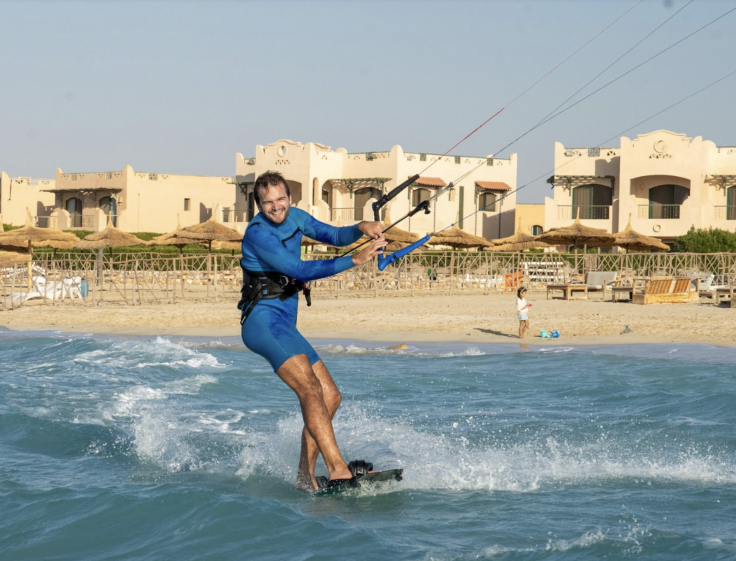
If you are interested in becoming a J-PAL postdoc, check J-PAL's career database!
